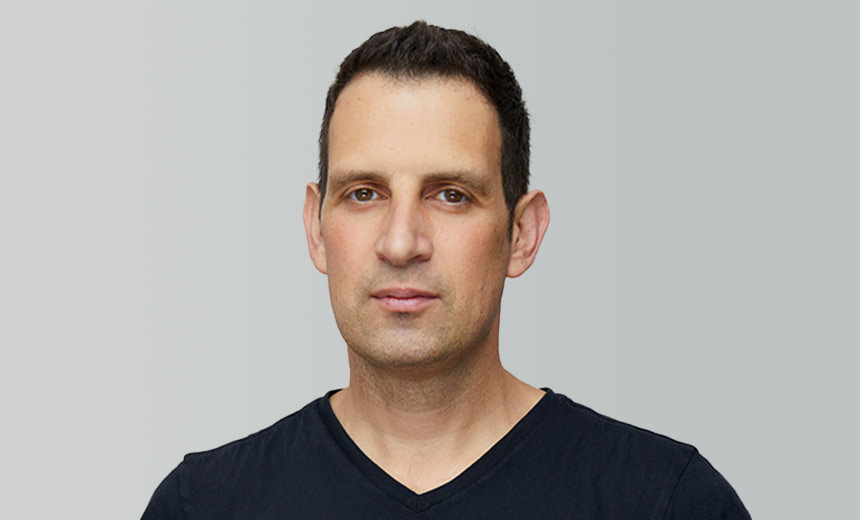Next-Generation Technologies & Secure Development
Startup Says It Cuts Software Vulnerability Volume, Helps Developers Avoid Overload

An application security startup led by the former CEO of Twistlock raised $51 million to take on software vulnerabilities in all their volume and complexity.
See Also: Unlocking Enterprise Productivity and Innovation Through Secure Agentic AI
The seed funding will help Baton Rouge, Louisiana-based Minimus move industry toward culling vulnerabilities before they reach the developer, asserted co-founder and CEO Ben Bernstein. He said Minimus axes traditional alert-based scanning systems with a preventative architecture that reshapes how development and security teams partner.
“The big problem that we’re tackling is actually about giving you the most sacred resource that you actually can have, which is time,” Bernstein told Information Security Media Group. “We’re giving you time back by basically eliminating 95% of the vulnerabilities that you deal with.”
Minimus has been in business since in 2022, employs 35 people and tapped YL Ventures and Mayfield to lead its seed funding round. The company has been led since inception by Bernstein, who previously established container security startup Twistlock in 2015 and sold it to Palo Alto Networks in July 2019 for $378.1 million. Bernstein then oversaw products and engineering for Palo Alto Networks before exiting in 2020 (see: Sale of Recorded Future a Highlight of Big InfoSec M&A Week).
Why Traditional Application Security Approaches Don’t Cut It
Bernstein chose YL and Mayfield for their deep operational value and previous working relationships. YL had previously invested in Twistlock and provided trusted guidance, while Mayfield regretted its decision to not invest in Twistlock. Bernstein praised Mayfield Managing Partner Navin Chaddha for his sharp thinking and likened his analytical style to that of an engineer.
“Right now, we’re just putting everything into R&D,” Bernstein said. “And as we grow fast, it will be easier to put the money more into go-to-market. We’ve put some effort into go-to-market, but we’re not a fancy, big company and we’re not trying to use the money for that at this point. Again, if we’re successful, I think it will sort of evolve naturally in that direction.”
Today’s developers and security teams are bombarded with endless vulnerability alerts stemming from deeply embedded dependencies and outdated packages in containerized spaces. Traditional approaches expect developers and security teams to triage and prioritize these issues with limited visibility and high operational burden, with Minimus changes the paradigm by offering pre-secured software components.
“Someone built some containers somewhere made up of all these pieces, and they’re not being updated when vulnerabilities happen, and we end up with something that we need to patch and we never know what’s going to happen tomorrow,” Bernstein said. “It’s just impossible to deal with.”
What Sets Minimus’ Approach Apart From Competitors
Minimus offers pre-secured building blocks that developers can use to write safer software from the outset. Solving this problem involved building and rebuilding thousands of open-source packages and maintaining complex dependency trees. Instead of surfacing thousands of alerts, Minimus ensures that the packages developers use are already secured.
“We’ll make sure that we take it from the upstream, we build it all the way and that it’s always up to date,” Bernstein said. “You can decide whether you want to update or not, but we will make sure you get as close to zero vulnerability at any given time as possible, which we say is like more than 95% of their vulnerability is gone.”
Bernstein said tools like Checkmarx, Black Duck and Veracode focus primarily on static analysis of custom code, but ignore the deeper problem of inherited vulnerabilities from open-source dependencies. Platforms like Snyk emerged to fill that gap, but Bernstein said the model isn’t scalable since it largely relies on scanning and alerting and security teams are overwhelmed with noise.
“Snyk is the most cool, flexible, big company out there that does something about it,” Bernstein said. “But just because it’s so different, I think it’s going to be a race between different startups, and hopefully we’ll be successful.”
Rather than optimizing for revenue or deal size early on, Bernstein said Minimus’ core KPI is the number of customers actively using and benefitting from the product. He wants to gain traction with individual teams that find Minimus useful, and then grow account footprint as trust builds. He said this echoes the early days of Twistlock, which succeeded by winning developer champions within large organizations.
“Since I was young, I always believed in ‘focus on customers, make them happy and things will work out,'” Bernstein said. “So, for me, the most important thing is to get to as many customers as possible, not selling them the biggest deal ever, but trying to make sure I solve a lot of problems for a lot of customers.”
